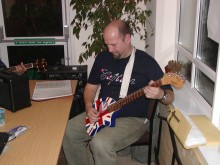 Here’s another great blog from one of my favourite psychiatrists, Mark Ragins of The Village fame. I first posted this article that Mark wrote on Recovery Stories back in October 2013. Mark wrote the original article in 1998. [NB. I have broken up some of the original paragraphs to make it easier to read online.]
Here’s another great blog from one of my favourite psychiatrists, Mark Ragins of The Village fame. I first posted this article that Mark wrote on Recovery Stories back in October 2013. Mark wrote the original article in 1998. [NB. I have broken up some of the original paragraphs to make it easier to read online.]
‘In 1989, the California State Legislature authorized the funding for three model mental health programs, including the Village Integrated Service Agency in Long Beach, in part to answer the question, “Does anything work?”
We created a radical departure from traditional mental health services basing our entire system on psychosocial rehabilitation principles, quality of life outcomes and community integration. Arguably, we have created the most comprehensive, integrated and effective recovery based mental health program anywhere.
In recent years, encouraged by our success, both our attention and the legislature’s have turned to the further question of “How can our whole system be more like the Village?” Undoubtedly, there are numerous serious beaurocratic, funding, and system design issues relevant to that question, but I would like to focus on the personal issues staff must face.
I believe that basing mental health services on recovery is the paradigm shift that can finally make the dream of deinstitutionalization a reality.





